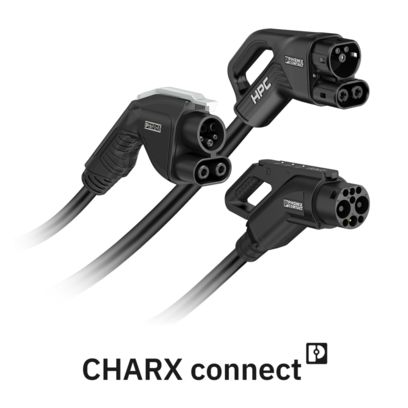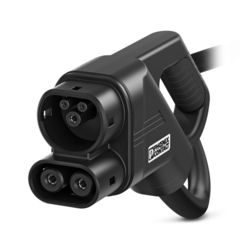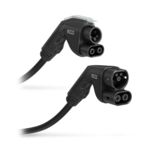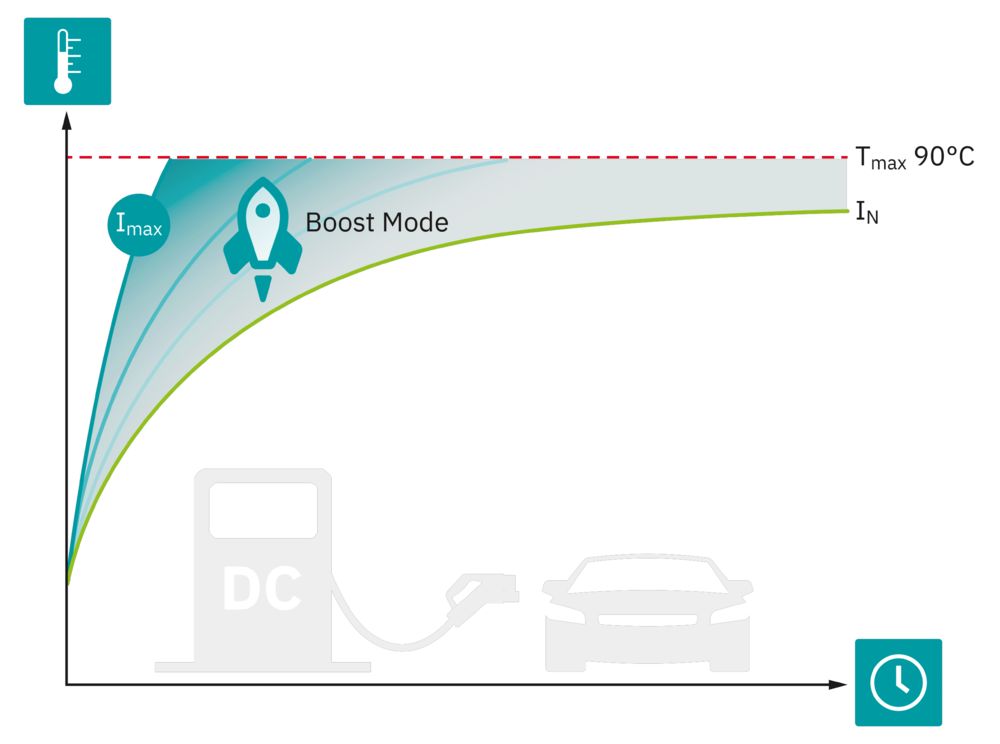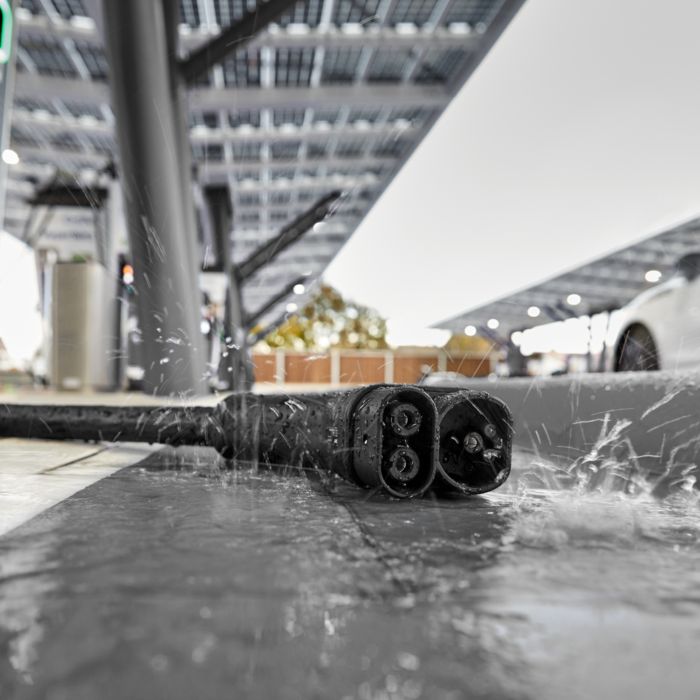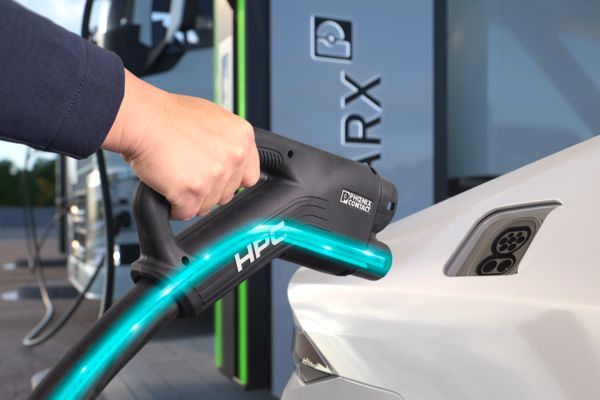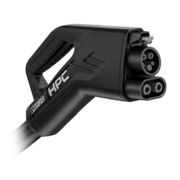
Our liquid-cooled HPC charging cables work with an environmentally and maintenance-friendly water-glycol mixture. They transmit up to 1 MW without compromising safety or manageability, making them an attractive option for utility vehicles too. The portfolio covers the following charging standards and performance classes:
- NACS
- Available from Q1 2026 / over 600 A permanently / 1,000 V
- CCS type 1
- 700 A in Boost Mode / 500 A permanently / 1,000 V
- CCS type 2
- 1,000 A in Boost Mode / 800 A permanently / 1,000 V
- 700 A in Boost Mode / 500 A permanently / 1,000 V
- GB/T
- 600 A in Boost Mode / 500 A permanently / 1,000 V

